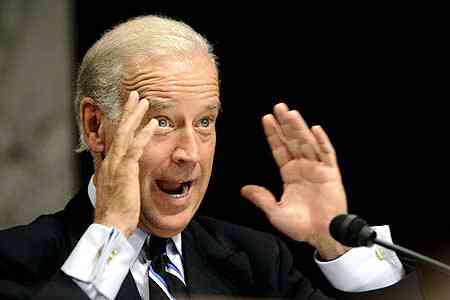Judicial Watch earned a victory in court on August 4 in its pursuit of documents related to the Obama administration’s Black Panther scandal. (This gets a bit technical, so hang with me.)
In short, a federal court rejected a claim of the “attorney work-product doctrine” by the Department of Justice (DOJ) for documents prepared after the government dismissed its case against the New Black Panther Party for Self Defense on May 15, 2009. (The work-product doctrine shields materials prepared in anticipation of litigation from release. The Obama administration was using it to try to protect documents sought by JW through the Freedom of Information Act (FOIA) and a related lawsuit.)
Several members of the New Black Panther Party were accused of engaging in voter intimidation during the 2008 presidential campaign.
In his August 4, 2011, decision, U.S. District Judge Reggie B. Walton rejected the Obama DOJ’s arguments that documents prepared after the government dismissed its case (against the Black Panthers on May 15, 2009) could be withheld under the “attorney work-product privilege” exemption. Judge Walton explained:
Although an injunction remains in place in the New Black Panther Party case…the filing of the motion for voluntary dismissal largely marked the end of the litigation. As such, the documents prepared subsequent to that event were not prepared in contemplation of litigation and are thus outside the scope of the work-product privilege.
Because the case had essentially ended on May 15, 2009, Judge Walton found that “it is difficult to see how” the 24 documents created after May 15, 2009, “were prepared or obtained because of the prospect of litigation, which is the testing question the Court must answer in evaluating the DOJ’s work-product claim.”
Although Judge Walton found that the DOJ improperly withheld the 24 documents under the attorney work product doctrine, he concluded that the documents were properly withheld under the deliberative process privilege. (This is the exemption that intends to protect the internal processes of the executive branch. The idea is that by guaranteeing confidentiality, the government is in a better position to receive candid advice and recommendations. In our experience, the government often uses this privilege broadly and inappropriately to stonewall the release of information to the public.)
Judge Walton also found that the DOJ failed to satisfy its burden of showing that the 24 documents may be withheld in their entirety. Under the deliberative process privilege, the DOJ may only withhold information that is “predecisional and deliberative.” Judge Walton explained:
As it stands now, the description of the DOJ’s segregation efforts is too general for the Court, and the plaintiff, to evaluate whether any factual material in these documents is ‘inextricably intertwined’ with the deliberative material and would thus permit the DOJ to withhold the documents in their entirety.
Judge Walton provided the DOJ a second chance to satisfy its burden by submitting “a renewed motion for summary judgment accompanied by a declaration or other documentation that solely addresses the segregability issue.”
(The DOJ’s renewed motion for summary judgment is due September 30, 2011. Judge Walton hopes to rule by February 3, 2012.)
Importantly, Judge Walton also stated that if the Obama DOJ fails to “provide adequate detail regarding why these documents cannot be segregated, the DOJ will be required to disclose the non-exempt portions to [Judicial Watch].”
So additional documents could be forthcoming, which would help Judicial Watch to complete the public record on this race-tinged scandal.
Let’s review what we know so far…
According to a DOJ document previously produced to Judicial Watch, top political appointees at the DOJ were involved in the decision to dismiss its voting rights case against the New Black Panther Party, including Associate Attorney General Thomas Perrelli, the third highest ranking official at the Obama DOJ.
Attorney General Eric Holder also received “an update on a planned course of action in the NBPP” from Acting Assistant Attorney General Loretta King dated May 12, 2009, just three days before the case was dismissed, according to a Vaughn index uncovered by Judicial Watch. (A Vaughn index describes documents being withheld from disclosure under FOIA and the basis for the withholdings.)
The documents JW uncovered through this Vaughn index include descriptions of internal DOJ email correspondence that directly contradict sworn testimony by Thomas Perez, Assistant Attorney General for the Civil Rights Division, who testified before the U.S. Commission on Civil Rights that no political leadership was involved in the decision.
So now you see why it is so important to force the release of as much information as possible about this scandal, and to find out why the Obama administration is going to such extraordinary lengths to shield this information from the public.
We already know the Obama administration’s claim that political appointees were not involved in this decision is patently false. And now DOJ officials continue to fight tooth-and-nail to stonewall the release of additional information. What else do they have to hide? This new court ruling means that we may pry loose some additional information on this voter intimidation scandal and perhaps get to the truth in the matter.
Of course, one of the major discoveries emerging from this scandal is the Obama DOJ’s racist and preferential application of civil rights laws. And if you’d like to know more about this problem, then please read on.

COMMENTS
Please let us know if you're having issues with commenting.